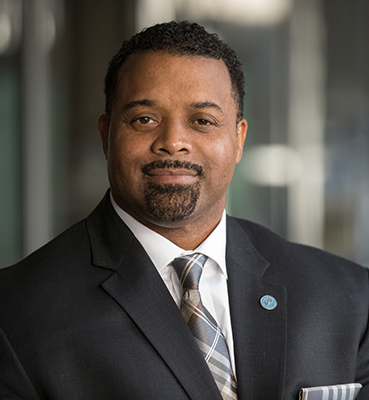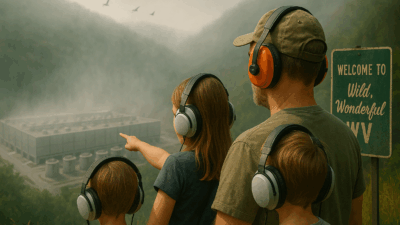As a result of COVID-19, many issues that some of us knew existed have been exacerbated.

Pittsburgh is at the precipice of being a global leader in technology. This development supports a three-legged stool for the region, encompassing technology, education, and the health care sector.
Today, we have an opportunity to lift all the individuals in our state and southwestern Pennsylvania toward this trajectory as a possible “North Star” for the region.

Optimizing the ability to learn 21st century transferable career skills should be a shared objective for our residents.
As long as we continue to outsource talent when we miss aligning our natural resources, we will never fulfill our dominance as a region because some of our best and brightest move away each year. Young talent often has moved to Chicago, Philadelphia, New York, Los Angeles, or Boston — places that are richer in diversity and inclusion.
We’re emerging from the worst of the pandemic. In some ways the atmosphere feels post-Prohibition: We’re experiencing a feeling of permissiveness we haven’t had in more than a year. But the systemic problems we have remain.
Postindustrial cities — many that boomed a century ago — continue to struggle to find a path forward, with infrastructure built for another time and inherited systems that inherently favor certain groups over others. Now is the time to explore this work together.
The post-Prohibition era was an opportunity for America to reimagine itself and to tap into the possibilities of what it can become. It spurred business and opportunities for development and expansion. Expanding upon the traditional aspects of the economy leads to creating economies of scale that change communities.
Cities that are closer to New York and New Jersey, run different industries and benefit from diversity in their inception. Pittsburgh, being on the other side of the state, didn’t have that across race, ethnicity, and economic strata. The diversity in Philadelphia allows for imagination across social-economic strata and cross-collaboration evident in the most innovative places on earth with global and local corporations.
We are building on opportunities to create a path forward to nurture the region’s growth.
Unfortunately, Pittsburgh still is lagging as it deals with its conceptual commitment to racial equity versus its operational commitment to systemic change.
Our region’s inability to capitalize on the depth of talent continues to result in less diverse communities. Eventually, this leads to a disconnect of people from all different industries across the region.
Creating momentum around the North Star will be critical in ensuring that all boats rise with the emerging tide.
We are building on opportunities to create a path forward to nurture the region’s growth. A North Star allows us to guide the region’s capacity or how we can better align the best skills and talents with the opportunities.
Southwestern Pennsylvania suffers from paradigm paralysis.
The guidance of a North Star can realign our nonprofits, schools, and businesses in a way that ensures that we meet the sector needs through collaboration. This way, we can transform people’s lives by supporting them to have sustainable jobs, health, and safe communities, less toxic environments, and good education for their children. There is a need to raise our voice for a shared North Star based on inclusion and diversity that is catalytic.
We’ve done studies and reports. Our communities are rich in philanthropy and good intentions. But how do you apply those resources to create long-term solutions? And solutions that last long after a specific pilot program has ended? How do you bring people to a new kind of table to create change that sustains itself — and creates more significant opportunities for all?
If we create that continuum within the social determinants of health within the North Star, it will improve the ability to retain talent, create succession plans across professional domains and will give people a desire to stay because they can go in a specific direction towards real, systemic change.
There is a call to action to govern the sector around a North Star that uses the social determinants of health to create a continuum of care for all residents. Using that platform allows us to extrapolate our regional assets to create a continuum from pre-kindergarten to career.
If we create that continuum within the social determinants of health within the North Star, it will improve the ability to retain talent, create succession plans across professional domains and will give people a desire to stay because they can go in a specific direction towards real, systemic change.
Lack of a shared vision for the region creates doubt and tells people they do not know if they want to stay in Pittsburgh.
We have an unstated North Star in Allegheny County, where there are young talent recruitment efforts, but not enough people settle in the region longer-term. We do not build continuity. The environment is not culturally receptive; having a diverse and inclusive workforce mirrors the world.
Pittsburgh is missing an opportunity to build that continuum if it were so. Is this the place that we want to put energy? If it is, what can we do to create energy on how we want to move forward?
The call to action is to develop resources that can preserve the integrity of our region’s activities. The North Star helps to personify, grow, and groom professionals.
Fred Brown is president and CEO of The Forbes Funds, a nonprofit based in Pittsburgh that helps human service and community-based nonprofits build capacity. He specializes in capacity-building, and sustainable social development. Brown was previously president and CEO of the Homewood Children’s Village. He is a frequent public speaker and also has taught courses and delivered presentations at local and statewide conferences and workshops.







